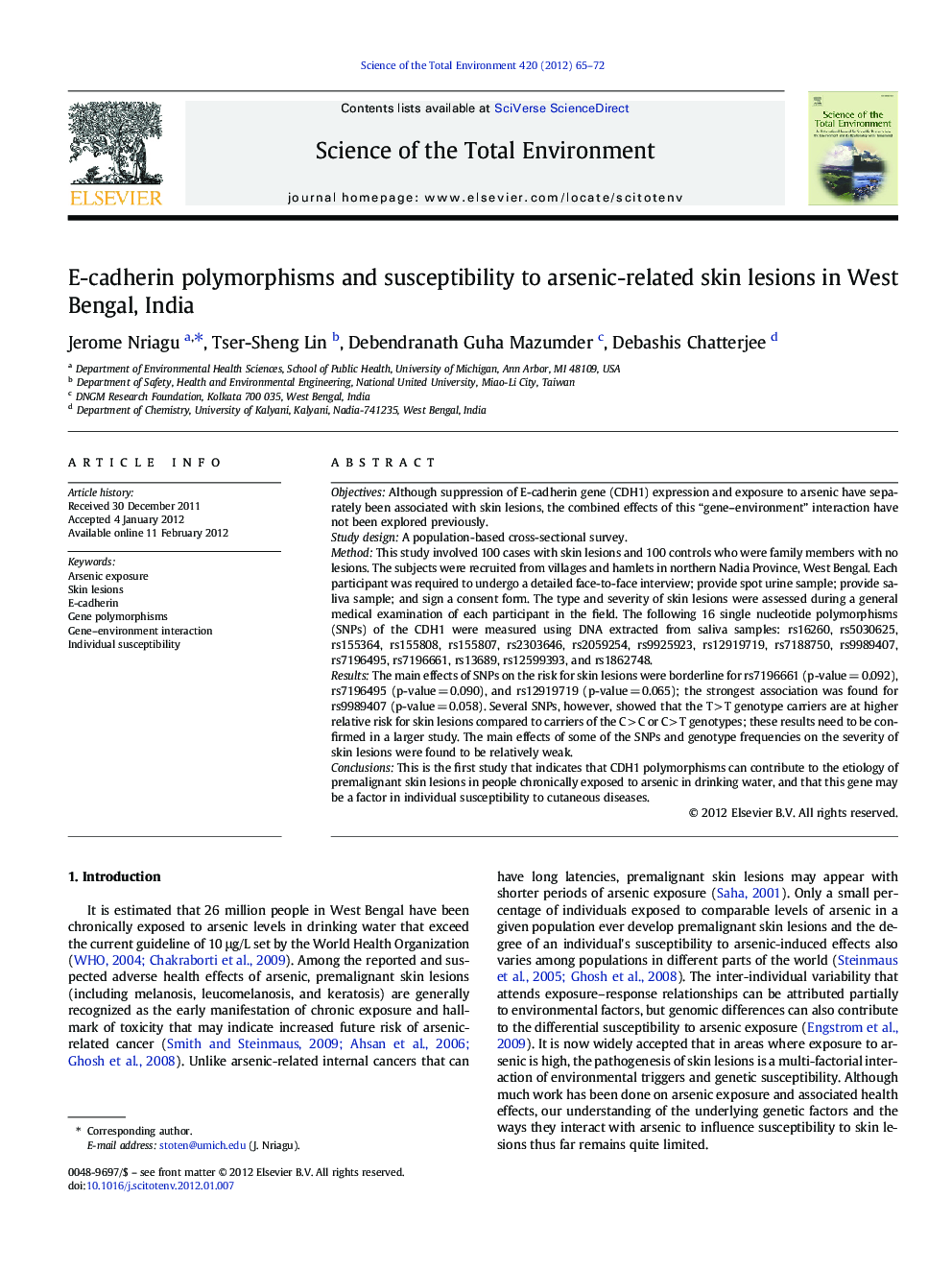| کد مقاله | کد نشریه | سال انتشار | مقاله انگلیسی | نسخه تمام متن |
|---|---|---|---|---|
| 4429618 | 1619830 | 2012 | 8 صفحه PDF | دانلود رایگان |

ObjectivesAlthough suppression of E-cadherin gene (CDH1) expression and exposure to arsenic have separately been associated with skin lesions, the combined effects of this “gene–environment” interaction have not been explored previously.Study designA population-based cross-sectional survey.MethodThis study involved 100 cases with skin lesions and 100 controls who were family members with no lesions. The subjects were recruited from villages and hamlets in northern Nadia Province, West Bengal. Each participant was required to undergo a detailed face-to-face interview; provide spot urine sample; provide saliva sample; and sign a consent form. The type and severity of skin lesions were assessed during a general medical examination of each participant in the field. The following 16 single nucleotide polymorphisms (SNPs) of the CDH1 were measured using DNA extracted from saliva samples: rs16260, rs5030625, rs155364, rs155808, rs155807, rs2303646, rs2059254, rs9925923, rs12919719, rs7188750, rs9989407, rs7196495, rs7196661, rs13689, rs12599393, and rs1862748.ResultsThe main effects of SNPs on the risk for skin lesions were borderline for rs7196661 (p-value = 0.092), rs7196495 (p-value = 0.090), and rs12919719 (p-value = 0.065); the strongest association was found for rs9989407 (p-value = 0.058). Several SNPs, however, showed that the T > T genotype carriers are at higher relative risk for skin lesions compared to carriers of the C > C or C > T genotypes; these results need to be confirmed in a larger study. The main effects of some of the SNPs and genotype frequencies on the severity of skin lesions were found to be relatively weak.ConclusionsThis is the first study that indicates that CDH1 polymorphisms can contribute to the etiology of premalignant skin lesions in people chronically exposed to arsenic in drinking water, and that this gene may be a factor in individual susceptibility to cutaneous diseases.
► The main effects of four SNPs on the risk for skin lesions were found to be statistically significant.
► Carriers of some genotype variants were found to be at higher relative risk for skin lesions.
► The main effects of SNPs and genotype frequencies on the severity of skin lesions were found to be relatively weak.
► The study suggests that CDH1 polymorphisms may be a factor in individual susceptibility to skin lesions.
Journal: Science of The Total Environment - Volume 420, 15 March 2012, Pages 65–72